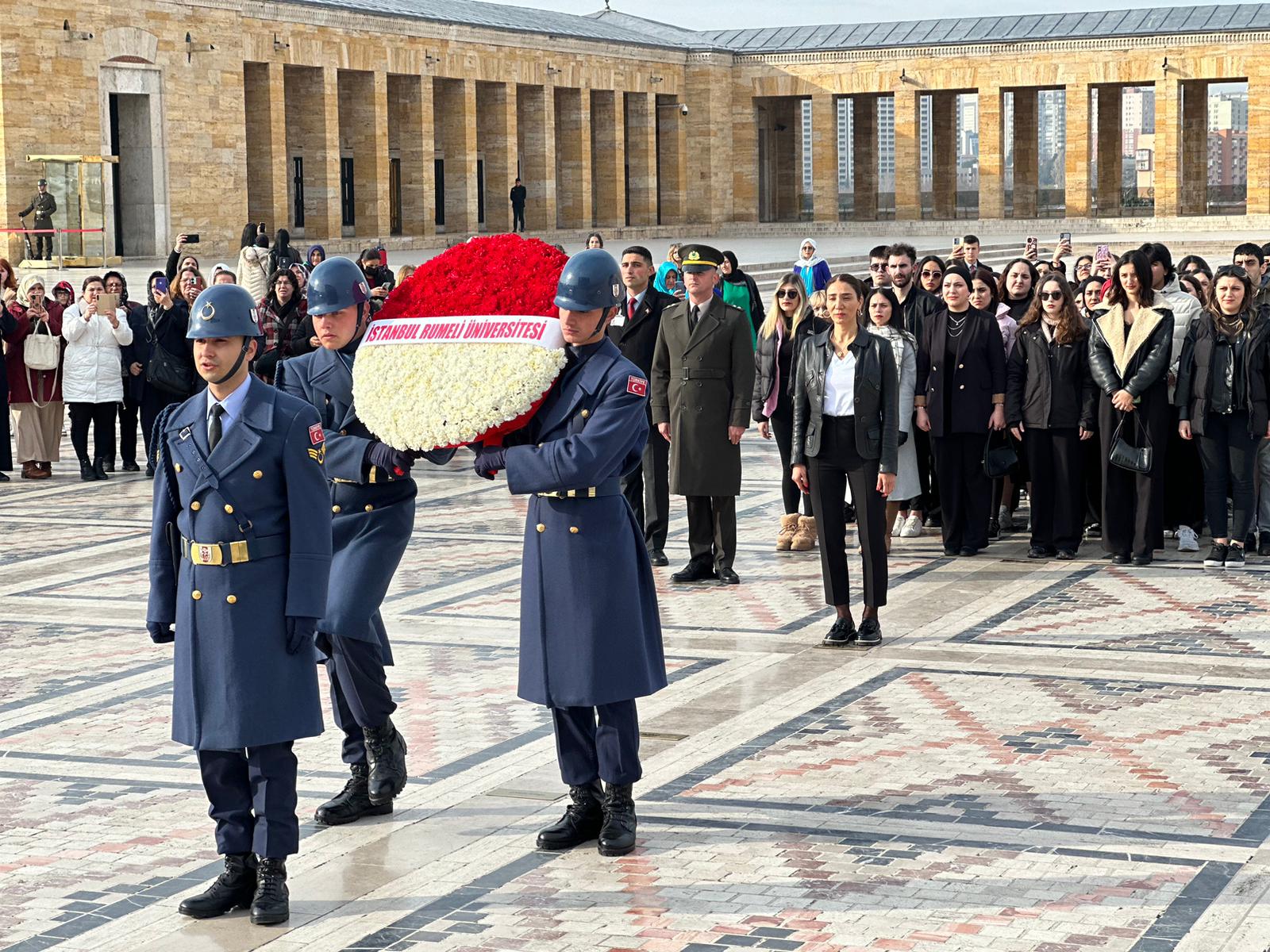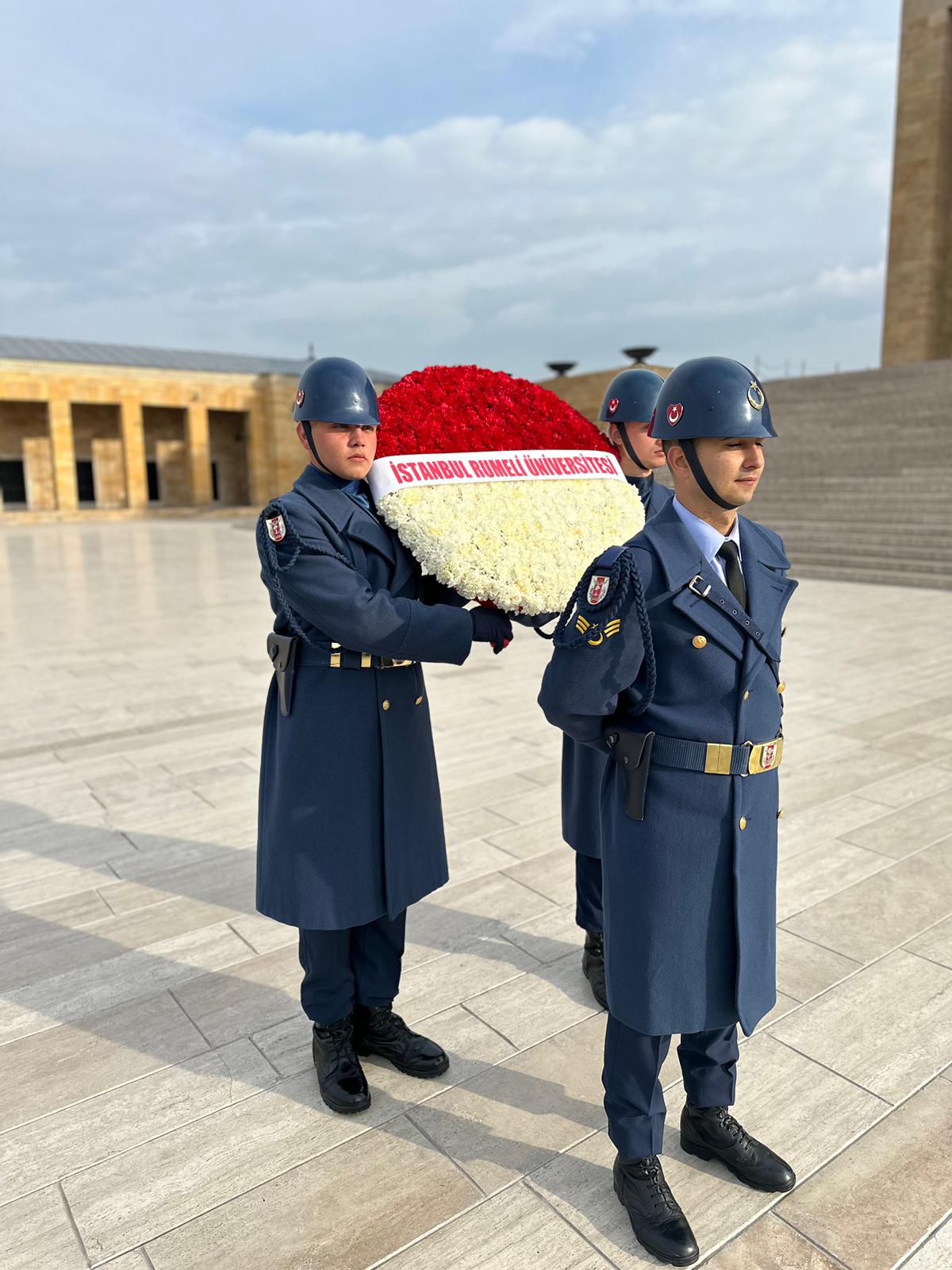On March 8, 2024, Istanbul Rumeli University students once again paid their respects to Atatürk on this special day to celebrate International Women's Day and commemorate the rights he granted to women.
Accompanied by a delegation, our students followed the soldiers carrying the wreaths to the area of the Mausoleum at Anıtkabir, after passing through the Lion Road. After laying the wreath, a moment of silence was observed, followed by Istanbul Rumeli University, Faculty Member Sevda KÖYÜSTÜ from the School of Health Services Vocational College of Medical Documentation and Secretariat, who conveyed her feelings in the Anıtkabir Honor Book with the following words:
"Great Atatürk, you were not only a successful soldier and statesman, but also a man who had an interest in art, enjoyed good food, and conversed with people from all walks of life, from waiters to drivers, from villagers to deputies, you were curious about their ideas and were as eager to write as you were to read. Many revolutionary leaders around the world embarked on their journeys by researching your life. They constantly investigate how you convinced a handful of Anatolian soil of a three-continent Empire to embrace a new regime, and not just any regime, but a Republic. There is still no shortage of those who consider you as a role model. Your youth, military, and statesmanship periods of your life were filled with exemplary behaviors. But in every era, you always valued people's opinions and tried to understand even those who opposed you."
Atatürk was a pioneering leader who fought not only for men but also for women's equality and freedom in the establishment and administration of the Republic of Turkey. Therefore, during our visit to Anıtkabir, by laying a wreath with our students, we once again emphasized the value he placed on women. We extend our thanks to Istanbul Rumeli University Faculty Member Sevda KÖYÜSTÜ and all our students for this meaningful event. This visit, led by them, once again demonstrates our students' commitment to Atatürk's legacy and their sensitivity to women's rights.


